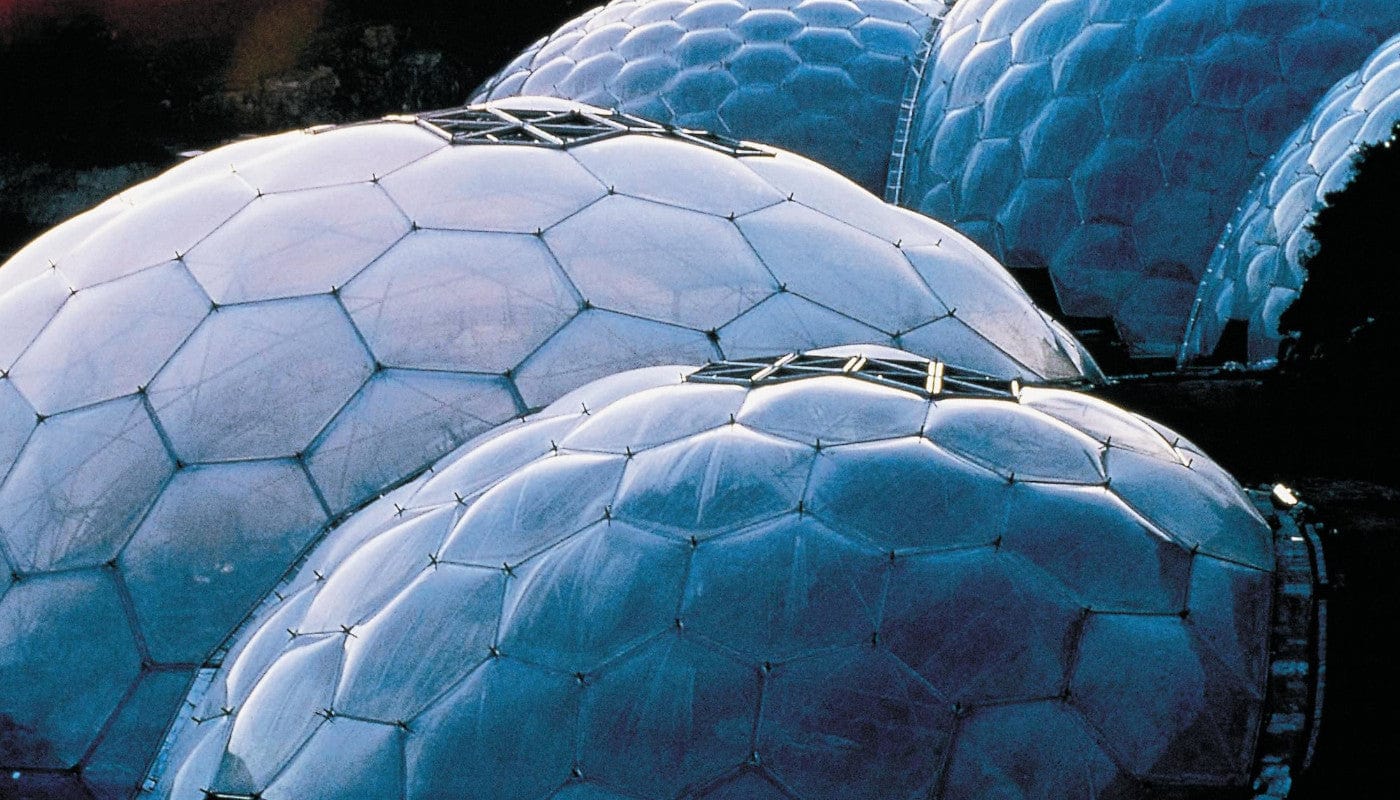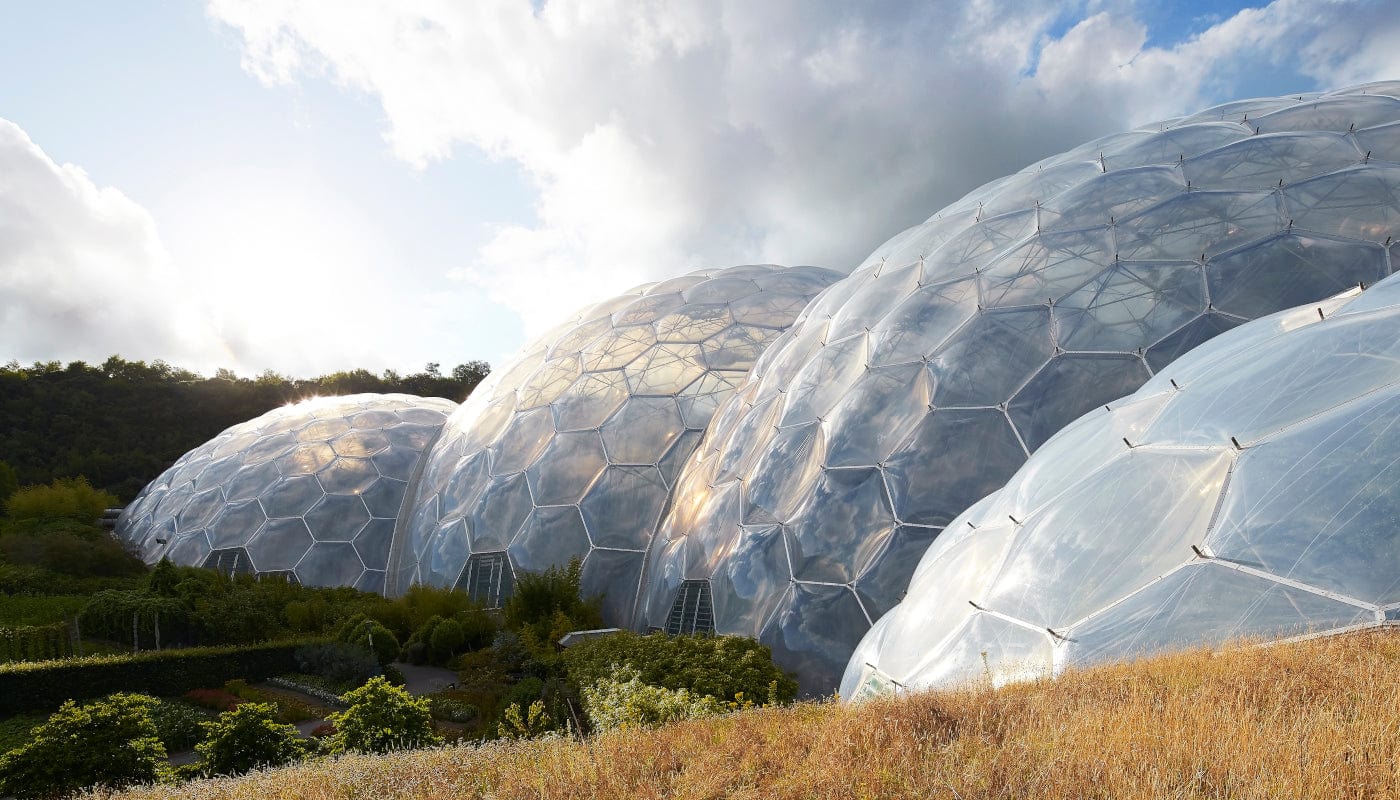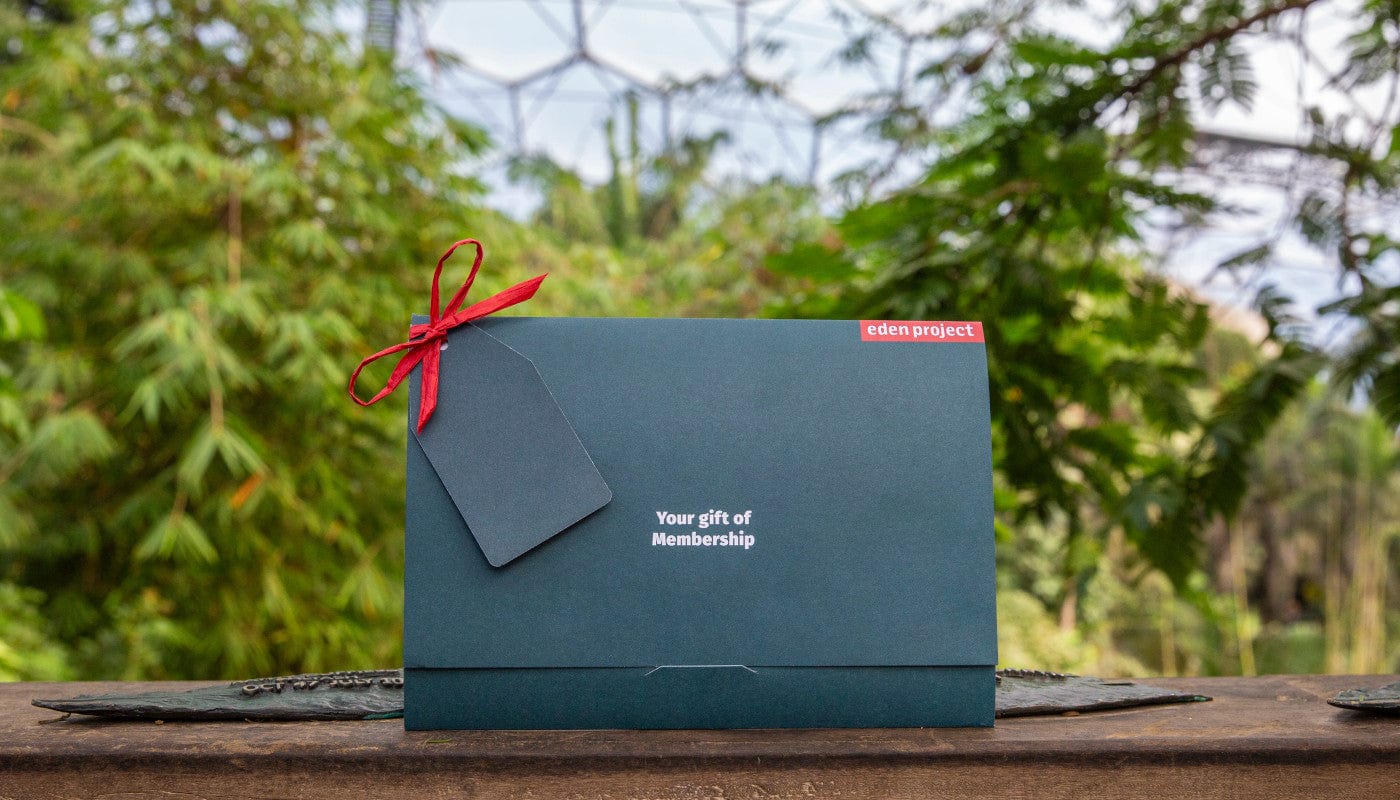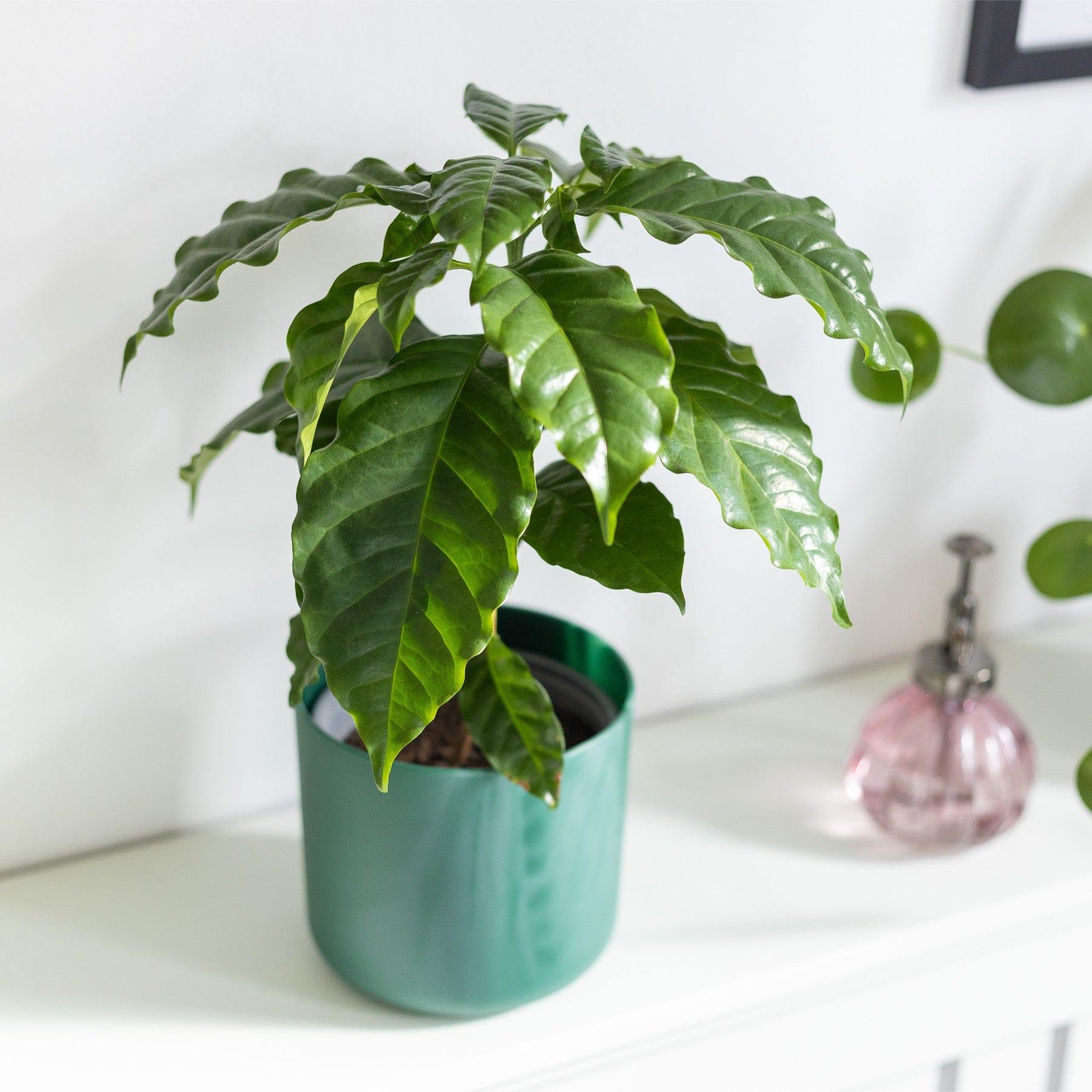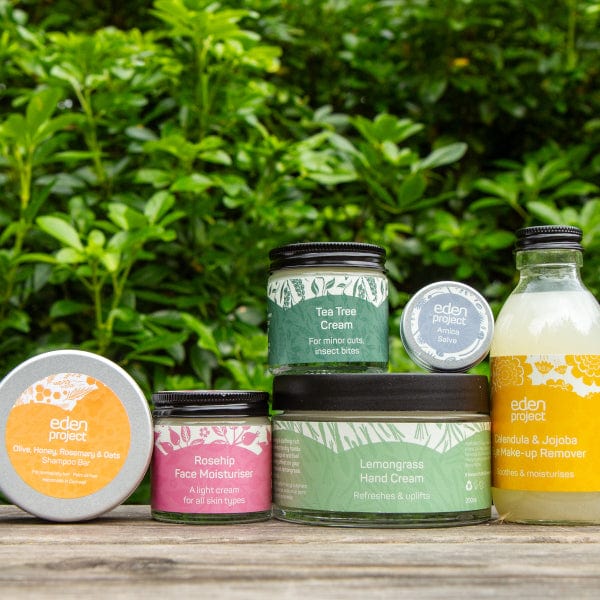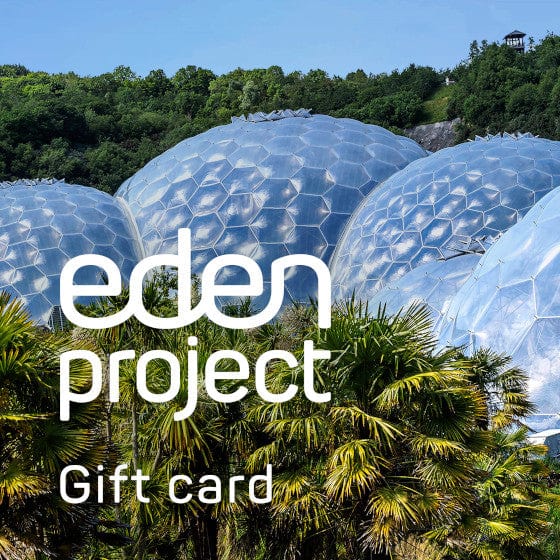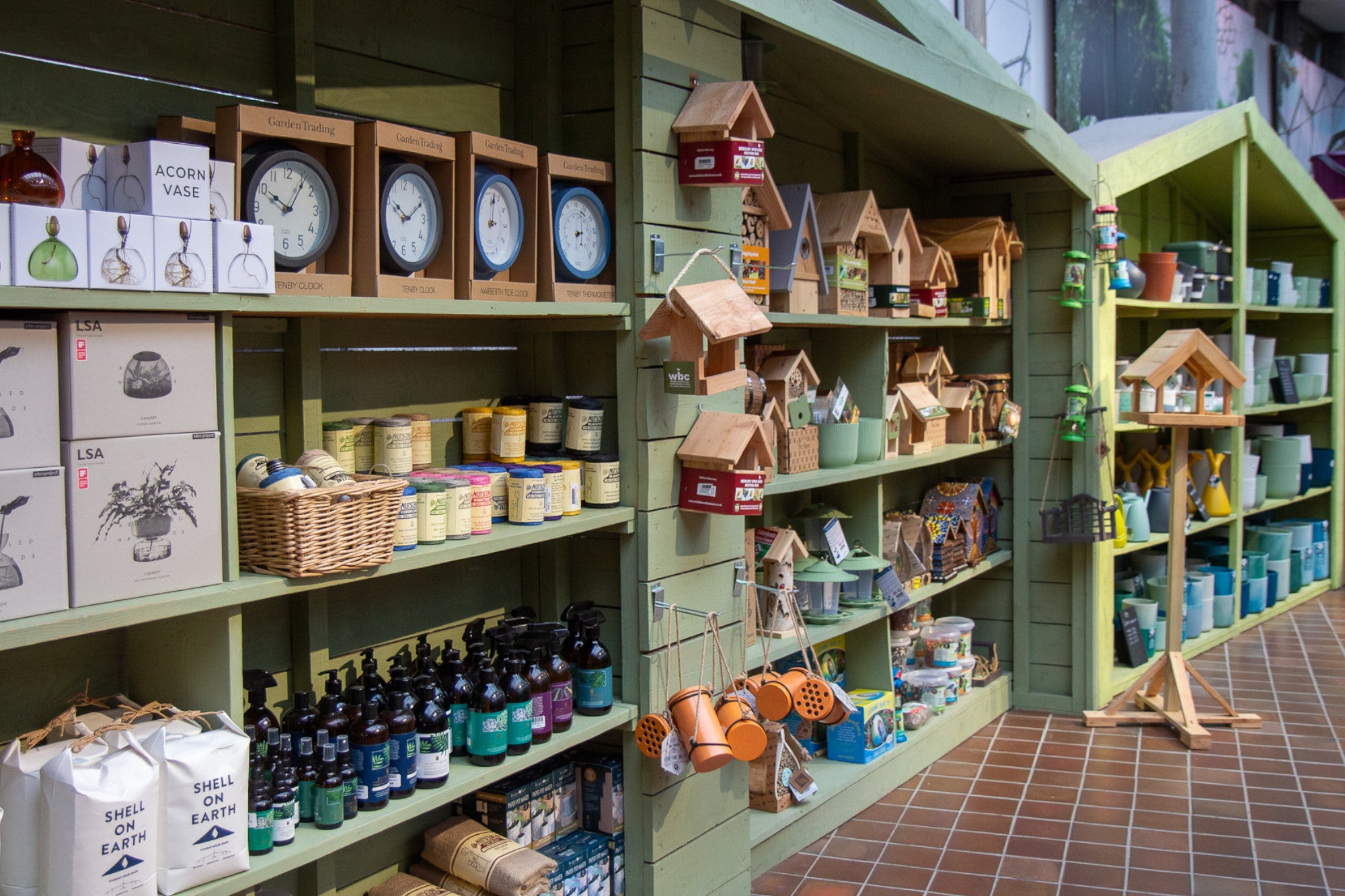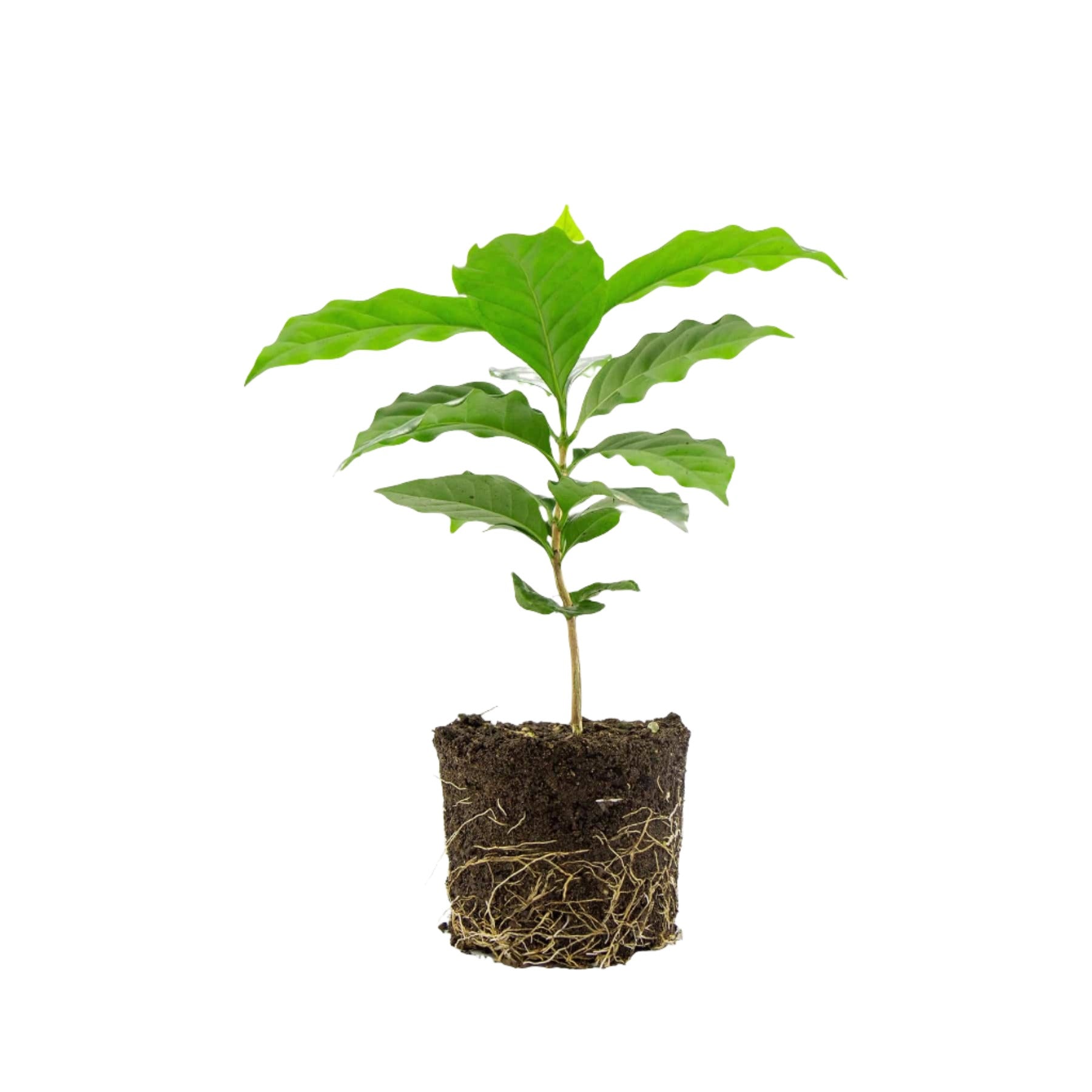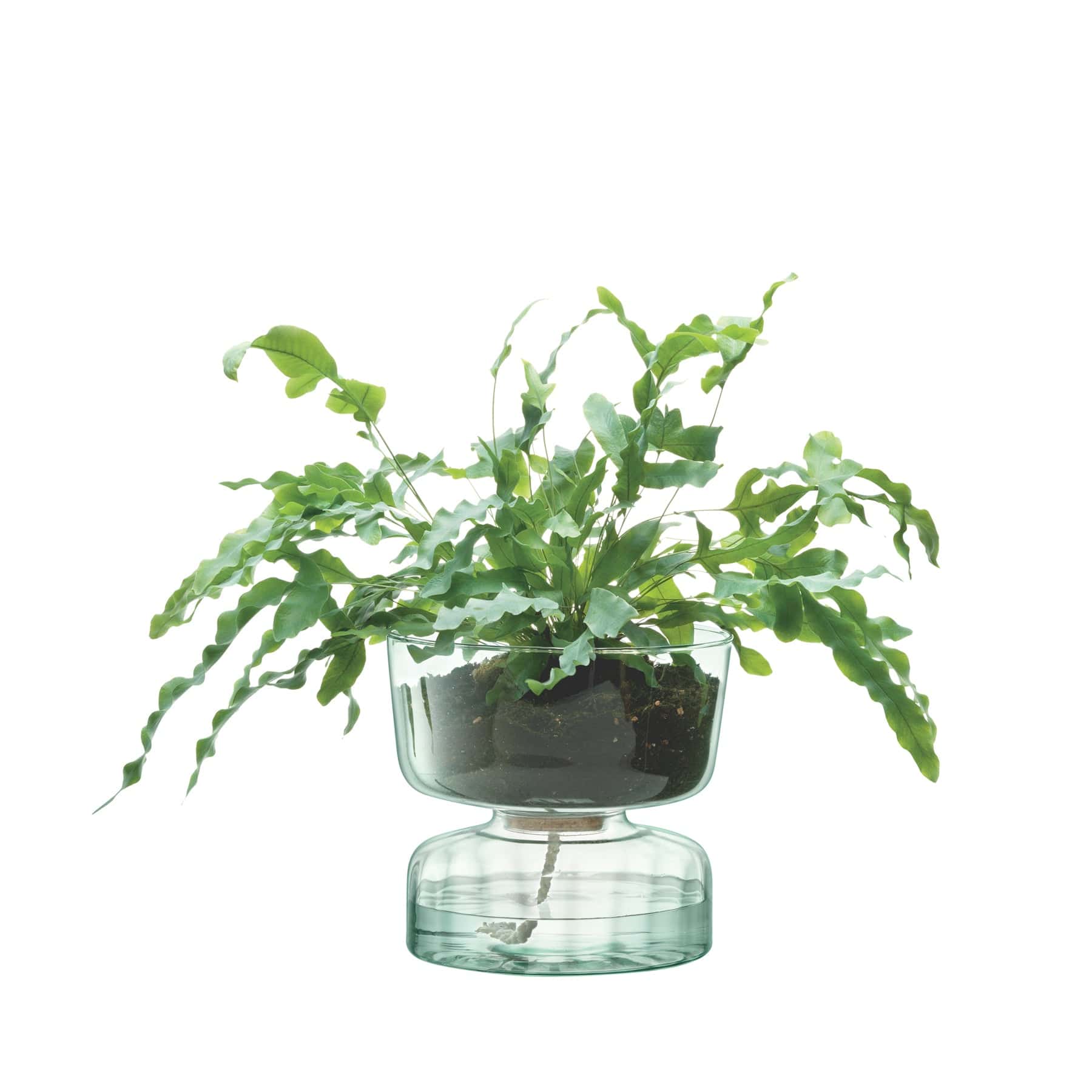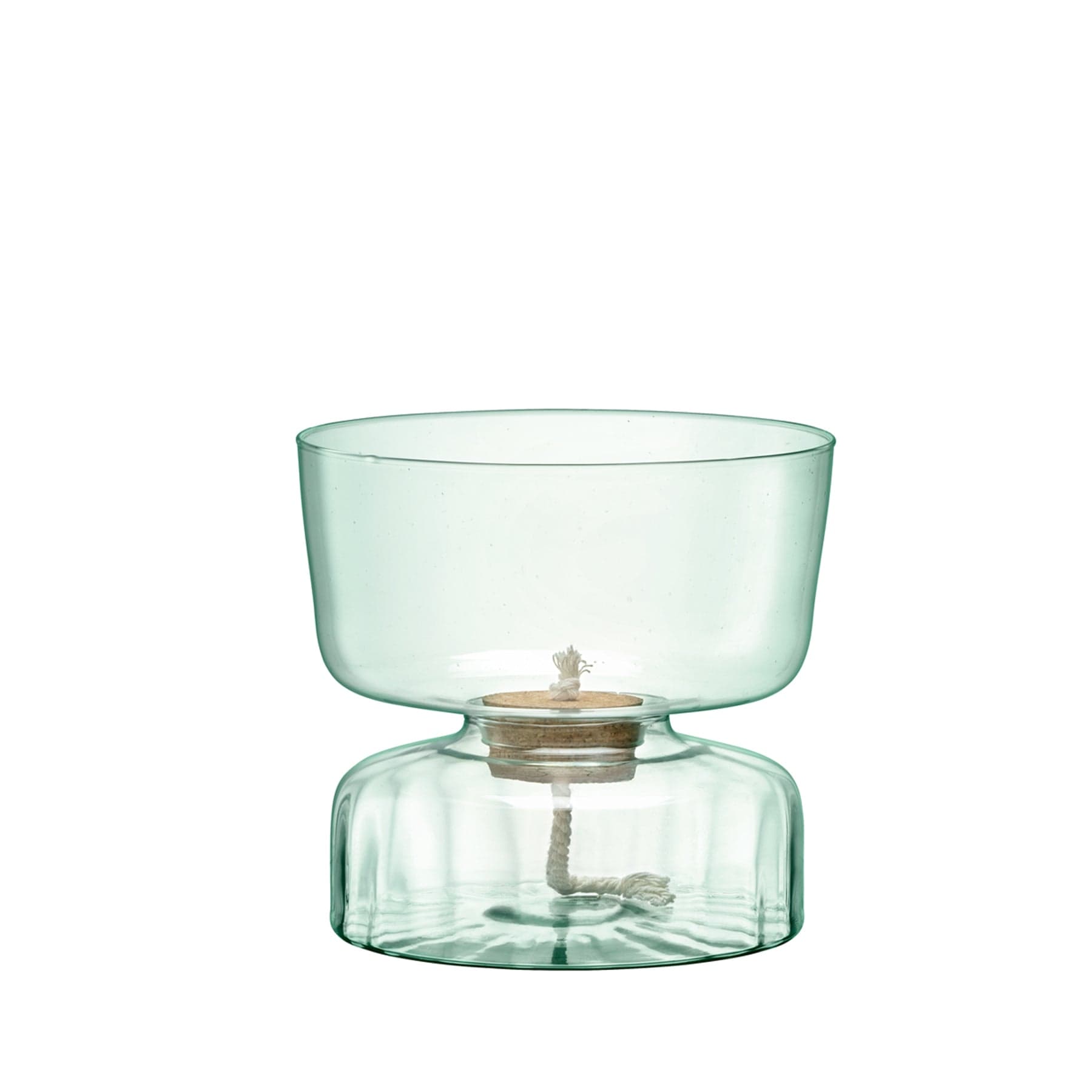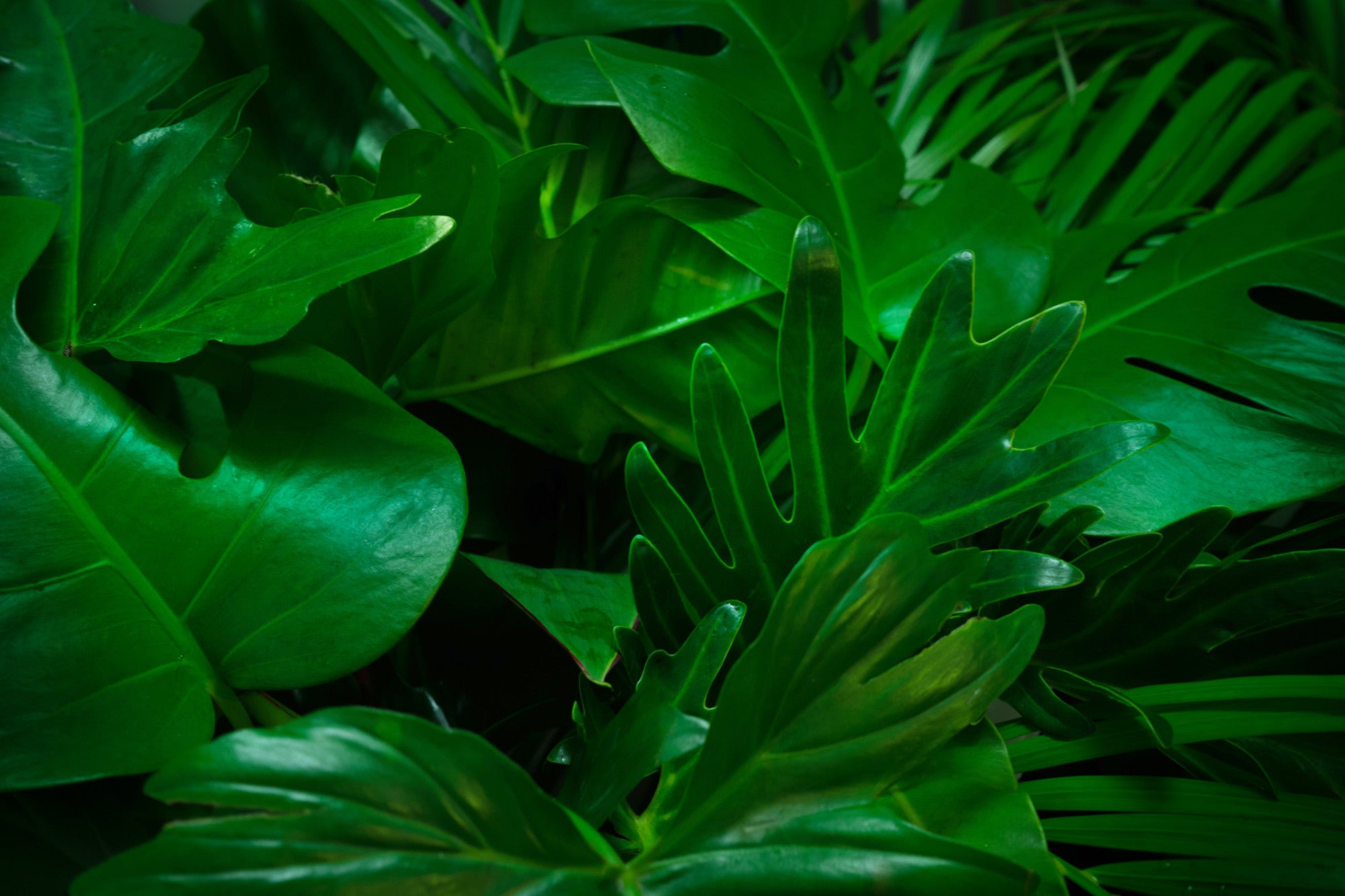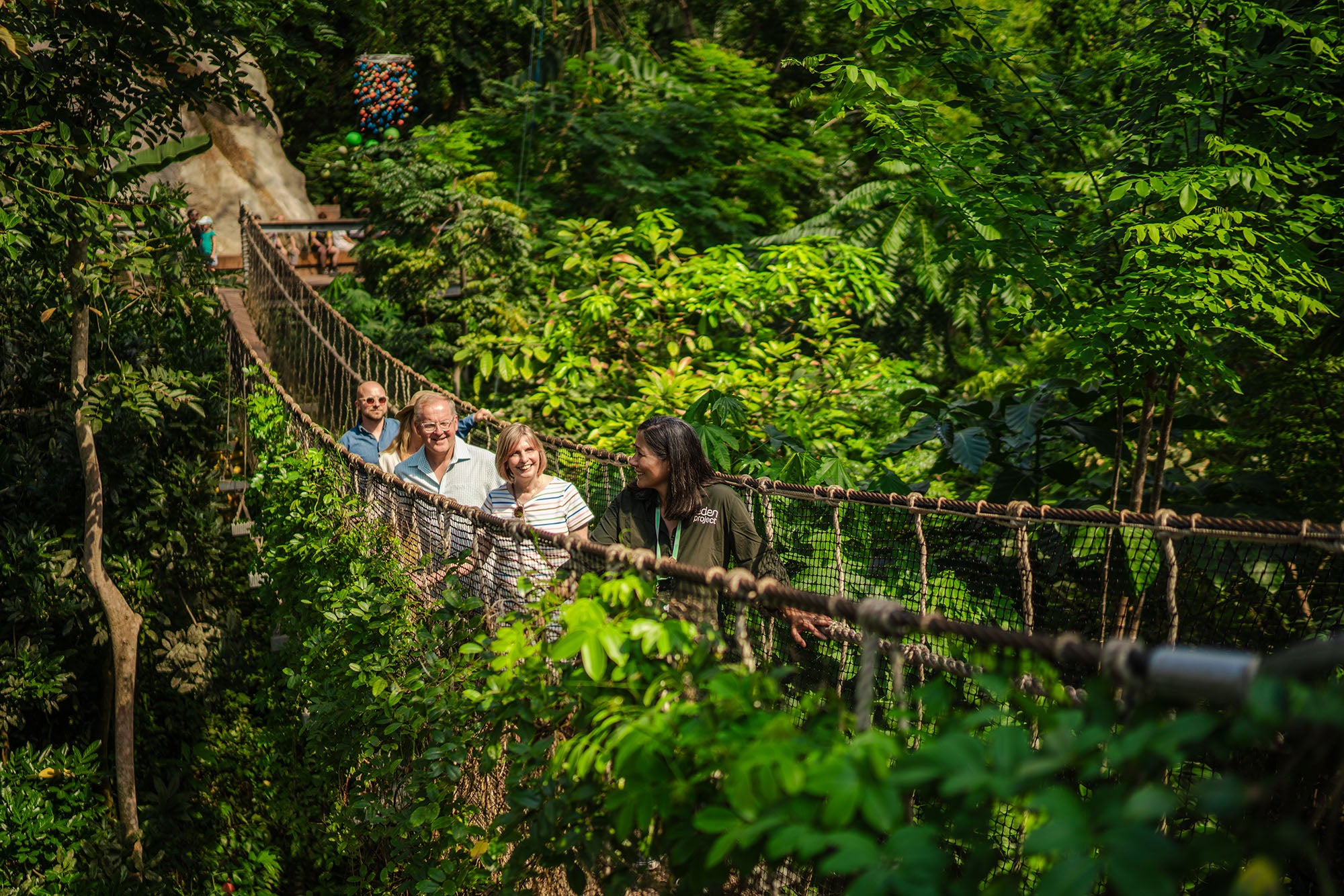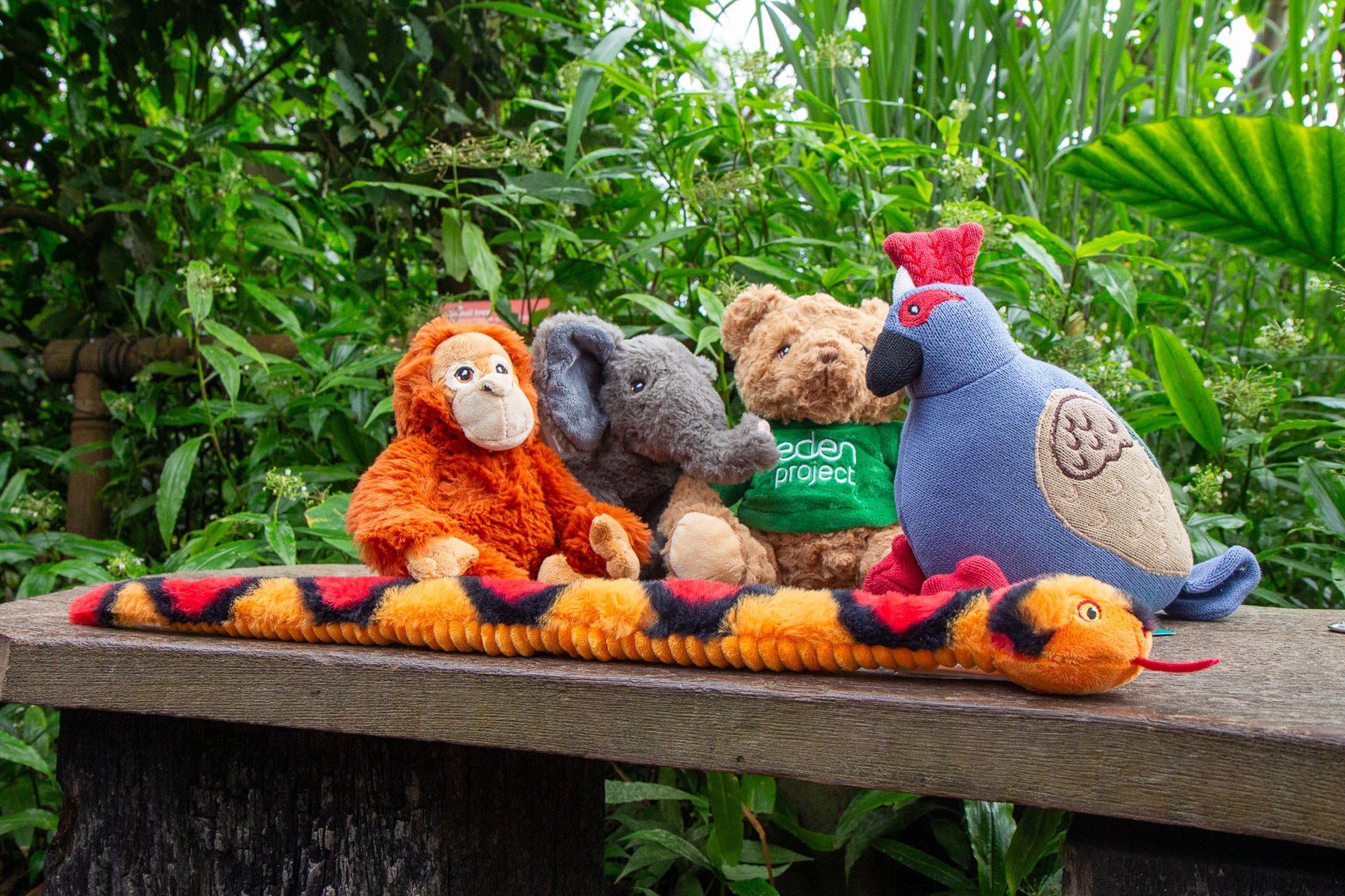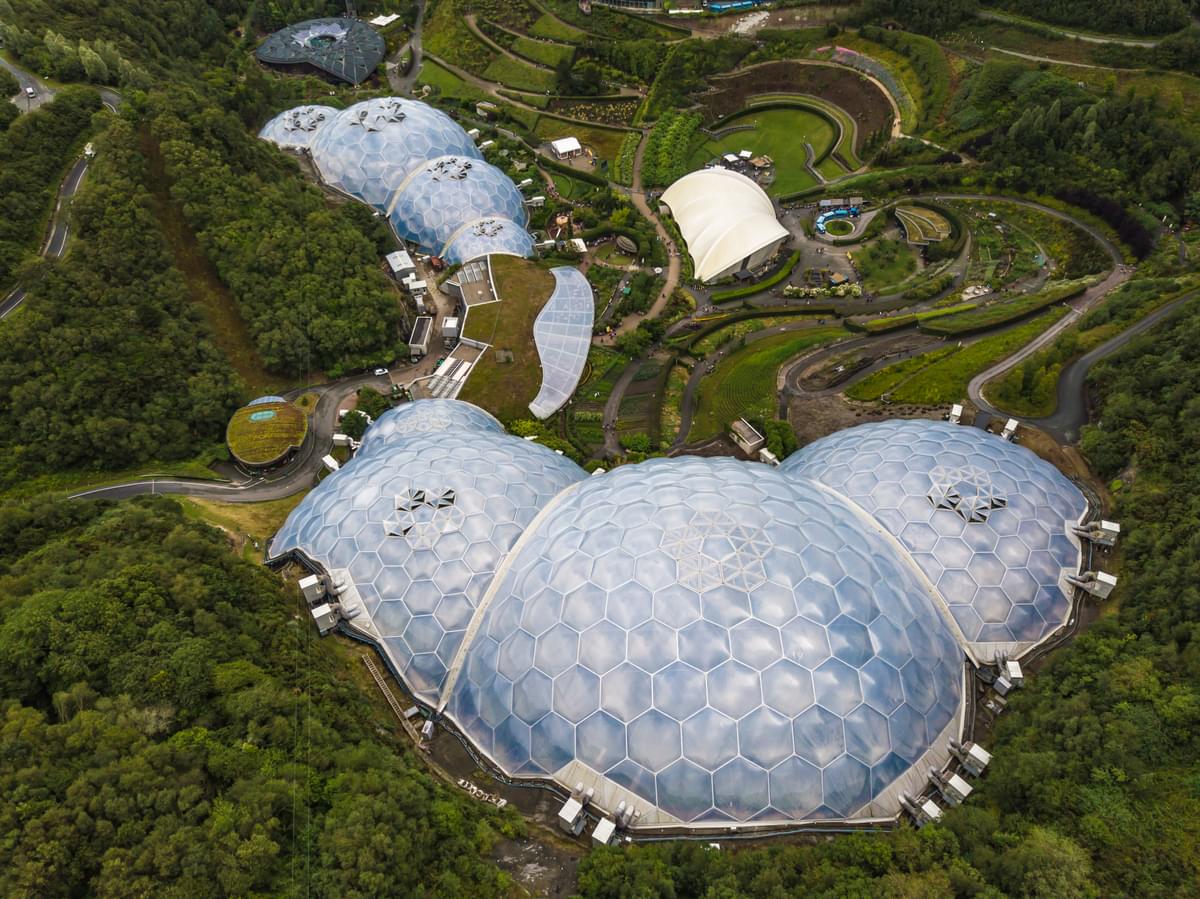Your wallet is your weapon: How to shop more sustainably
At the Eden Project we believe that your wallet is your weapon, as what we buy and consume is a major player in determining the health of the planet.
Farming, mining, manufacturing, processing, packaging, transportation and poor waste management of consumer goods are huge global drivers of water extraction, pollution, climate change, and biodiversity loss. Today the production of the things we buy and use is thought to produce 45% of all global greenhouse gas emissions. We are extracting and using around 50% more natural resources than 30 years ago, and with current trends of growth this could reach 100 billion tonnes of natural resources extracted per year by 2030. We are in a planetary emergency - if the planet’s health is threatened, so is ours. The time to act is now.
Governments, businesses, manufacturers and retailers must make changes to address the problems, and we, as consumers can put pressure on them to do so through the choices we make. Our wallets are our weapons in the fight against the planetary emergency.
First and foremost, we can all buy and consume less. There’s another, trendier name for this: minimalism. A reduction in demand will reduce production. Secondly, we can borrow or buy second hand, and lend, give away or re-sell what we already have. Rather than throw things away that we no longer need, we can pass them to others who do need them. One person’s trash is another person’s treasure.
If second hand isn’t possible, there are three key considerations for when we are poised to make a purchase. At the Eden Project, when we look into what makes a product sustainable, these questions form part of our criteria when choosing an item to stock in our shop:
- Where does it come from?
- What is it (and its packaging) made of?
- Where will it end up?
We can often find information on the packaging. Look for certification labels such as Soil Association, MSC, FSC, Rainforest Alliance, FairWild, Fairtrade, RSPO, which show that a product meets certain criteria. The Giki app can help explain what these mean and how to identify them. If a product advertises that it is “eco-friendly” it can be meaningless without proof, but on the other hand, if a product doesn’t have these labels, it doesn’t necessarily mean it’s bad. Look online or ask the supplier or seller for more information. How much they know about the product and its supply chain can show whether they’ve done their due diligence.
-
Where does it come from?
Many things we consume come from far away, and some are linked to the clearing and devastation of natural habitats, not to mention the emissions from their transportation all over the world. Choosing products that have been locally grown, sourced or manufactured can help reduce emissions and impacts on nature, and at the same time support local businesses. If we can’t choose local, then we can support projects and organisations that put nature and people first and are socially and ethically conscious. For example, projects that look after local and indigenous people’s rights, practice sustainable agroforestry, regenerate nature, and use organic methods and circular systems. We must also investigate and consider issues further down the supply chain; for example, much of the chicken and pork we consume in the UK may have been reared using feed based on soya that has been grown on deforested Amazonian land.
-
What is it (and its packaging) made of?
We can choose products that have less impact on the natural world by finding out what they’re made of. Natural and plant-based materials that are grown organically can limit pollution, reduce waste and they can often be recycled or composted. Also, choosing products that have been made from recycled or refurbished materials lessens the demand for the extraction of new materials.
Then we have to consider packaging. Is it wrapped in plastic, or is there an option to buy in bulk from a refill station using a reusable container? The production of plastic has a huge impact on nature. Plastic never biodegrades and some types can’t be recycled. Virgin plastic is produced from fossil fuels extracted from ancient valuable carbon stores so we must look out for biodegradable or compostable materials and sustainably sourced timber and paper. However, plastic is an incredibly useful material and sometimes it’s unavoidable, so it’s important we choose repurpose-able, recycled, recyclable and durable plastic products. Many clothes are also made from plastic – polyester, acrylic and nylon. When we wash these garments their tiny plastic fibres enter waterways and damage nature far and wide. In fact, a 2021 study found that 96 out of 97 seawater samples from the Arctic contained microplastics, and 73% of these were polyester microfibers. We can use filters in washing machines, but even better, we can choose natural fibre clothing and reduce the demand for synthetics.
When it comes to food, the more local, fresh and organic the better, avoid ultra processed, and Michael Pollan sums up the rest: “Eat food, not too much, mostly plants”. When buying fish, meat and dairy, which contribute significantly to global emissions, we must ask questions about the source and prioritise quality, and perhaps the higher financial cost (for a lower cost to nature) will mean we have to consume it less often.
-
Where will it end up?
We have to avoid single use and disposable or short-lived items wherever possible and consider how long something will last. When we’re done with it, we can think about ways to avoid throwing it “away” as waste in landfill is responsible for 5% of the UK’s total greenhouse gas emissions, so it’s important we all help reduce it. If an item can’t be passed on to someone else, it’s great if we can repurpose it at home, and the next best option is to pass it on to be repurposed or recycled properly. In time, following a circular economy approach, more and more products would be designed with this in mind. If it’s food waste, consider whether it can be composted - and then used to grow your own! If they’re untouched peelings or scraps, can they be fed to your animals? If it’s clothing, can it be taken to a charity shop or somewhere where others may need it? And by doing our research, we can make sure that our cleaning, household, personal care and gardening products are made of chemicals that won’t harm nature when they go down the drain or on the garden.
Many of these changes in the way we buy and consume will play their part in the crucial transition towards what’s called a circular economy. The straight trajectory of the current economy: take > make > use > waste, is unsustainable and has caused the mess we are in. A circular system however: make > use > reuse > renew/recycle/redesign > make, designs products for longevity, repairing or repurposing and creates products from recycled materials without losing value, thus reducing extraction.
It may sound like a lot to consider when you’re just buying a cup of coffee or a new pair of shoes, and currently in the UK the most sustainable option is often more expensive and the circular option hasn’t yet been designed. Research shows that although the majority of people want to make more sustainable consumer choices (two-thirds according to a survey quoted in the Harvard Business Review), there are multiple barriers that prevent them from actually doing so:
- Awareness - Sometimes people are unaware of the problems as they are often far removed – this is where doing your research comes in.
- Cost - Ironically, the synthetic item that comes from far away is often the cheapest, but it often has a bigger cost to nature and it will not last as long as something of a higher cost and higher quality.
- Convenience - It can be easier and less time consuming to do all our shopping at a supermarket in one go, rather than carefully select independent retailers based on their credentials.
- Availability - The desire and demand for more sustainable products that fit into a more circular system can outweigh the availability of those products.
To break down the barriers for conscious shopping and turn our good intentions into actions, we need to push for change. As smart consumers - using our wallets (and our voices) to pressure them - we can demand governments, businesses, manufacturers and retailers provide more information, more transparency and more consideration of the natural world.
At the Eden Project, we do as much research as we can into the products we sell, on an ongoing basis, so you can trust in what you buy from us and be assured that it doesn't cost the Earth.
